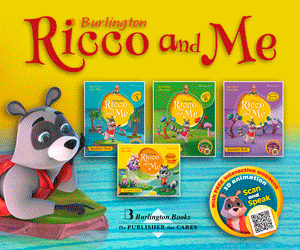With all of the new technologies that are surrounding us, and to the many school administrators that are not feeling comfortable with Twitter, Facebook, etc., I would like to suggest three ways (as opposed to the typical round number of 10) that you can focus on your own professional development over the summer. Less is oftentimes more in the digital world as we move from simply being "literate" to "fluent" in this language.
So for the administrator new to the world of social media and all of the possibilities that it holds for developing instructional leadership, here are three ways that I would suggest starting to learn this summer
1) Start a Twitter Account
Twitter is not just about "what I had for breakfast" (although I did have a delicious omelette at my favourite breakfast place this morning). There are a ton of educators on Twitter that are connecting and learning from one another, while building some global relationships that will be invaluable to the future of their own professional development, as well as their schools. Two years ago, it was something that I swore to stay away from, but in those short two years, Twitter has made more of an impact on my learning than any professional development opportunity I have ever been a part of, and dare I say, much more than my undergraduate and graduate work. The learning is real, the ideas are powerful yet simple, and the connections to resources and people are infinite.
To start, simply go to Twitter and create an account. Once there, you can follow the people on this list of educators, which will immediately start filling your column with great ideas and resources. If you are lost, you can often ask questions from Twitter sherpas like Dean Shareski or Alec Couros, two guys always willing to help. You are also welcome to connect with me, and I would be more than willing to help guide you in this world that isn't as confusing as it may seem. You can also use the Twitter Search tool and look at tweets from school administrators, or on the topic of educational leadership through the #cpchat hashtag.
If you are not sure what you want to put out there, I wrote this post, What should a networked educational leader tweet about?, to help school leaders share in a way that will benefit their own learning. Once you start to create your own Personal Learning Network (PLN), you may also want to look at creating a Twitter account for your school.
There are a ton of benefits from joining Twitter, but until you immerse yourself in using it, you will not be able to share them with those you serve.
"Go the way, know the way, show the way." (John C. Maxwell)
2) Read Blogs
Now that you have started connecting and learning using Twitter, you will probably have figured out that most content worth sharing goes way past 140 characters. With that being said, many school administrators are looking for content specific to their position, especially since the position of school principal can be quite isolating.
A great blog to start at is the Connected Principals site, where a ton of school- and division-based administrators share some of their best work within their schools. Although this site does have some great ideas, there are many other administrator blogs out there which may be of interest to you. Edudemic does an excellent piece on 20 Educator Administrator Blogs, which will lead you to some great writing of administrators that continuously share those ideas.
If you are using Google Reader (which you have if you have a gmail account), you can easily subscribe to a bundle I have created that will update you on blogs as authors post them, which will save you from constantly checking the site for updates. (Contact me for details.) In general, there are a lot of other good educator blogs as well, which share some great ideas for your school.
There is some great information out there and hopefully this will have helped you on the right path.
3) Write a Blog
Now that you have had access to some beneficial learning through Twitter and blogging, how will you share this with your staff and the world? Many leaders find that sharing links through email is a great way to start aggregating resources for staff, but many others are annoyed by all these messages. However, with these media opening up the world, it is important that, as school leaders, we share our learning back.
Dean Shareski shared the idea that blogging makes better teachers, so it is logical that school administrators do the same:
"There's a natural transparency that emerges. The teachers who blog as professionals in this reflective manner in my district invite anyone to look into their classrooms and you can get a picture of what happens on a daily basis. This goes a long way in addressing accountability concerns."
So where would one even start?
Although there are plenty of blogging platforms out there (Edublogs, Blogger, Tumblr, etc.), I would suggest using WordPress. It is free, has no advertisements and is simple to use. There is also a ton of support.
Reading other blogs, you may develop some ideas of what you want to write about, but if you are stuck, I started You Should Read, a weekly blog post that shares some great online articles that I've discovered. This is an easy way to start sharing some of the brilliant stuff you are reading, an easy way to start writing, and an opportunity to spark discussion with your staff and the global community. The best leaders not only can speak, but also have the ability to be good listeners. Blogging becomes a way to listen to your readers and learn from them while sharing your own knowledge.
Conclusion
Many look at tweeting and blogging as technocentric or even narcissistic, yet I look at them as ways of learning and connecting. There are so many real educators out there who want to get better at what they do so that they can always do what is best for kids. By opening up your own learning to the world, you will be surprised not only how your knowledge elevates, but how your passion for teaching and learning will benefit as well. Two years ago, a group of generous people spent time with me to help me learn about this awesome network, and I am glad to be doing the same for others now. Hopefully this will give you a good start.
George Couros (@gcouros on Twitter) is the Division Principal of Innovative Teaching and Learning for Parkland School Division, a large district near Edmonton, Alberta. He believes that, as educators, "We need to inspire our kids to follow their passions, while letting them inspire us to do the same."
Originally published (6/7/12) © Edutopia.org; The George Lucas Educational Foundation.
Τελευταία νέα
- EUROPALSO - Εγκύκλιος 27/06/2025: Απογραφή ΚΞΓ – Νέο Πρόγραμμα ΔΥΠΑ για εργαζόμενους και ανέργους – Εξετάσεις Ενηλίκων – WaterFun WaterPark – Βεβαιώσεις Σπουδών Society – Νέες Παροχές για ΚΞΓ ESB – Απενεργοποίηση κωδικών E-Europalso – Υποχρεώσεις Ιουλίου-Αυγούστου 2025
- EUROPALSO - ΦΟΡΟΛΟΓΙΚΕΣ ΥΠΟΧΡΕΩΣΕΙΣ ΙΟΥΛΙΟΣ & ΑΥΓΟΥΣΤΟΣ 2025
- EUROPALSO - Νέο Πρόγραμμα ΔΥΠΑ – Με επιδότηση €750
- EUROPALSO: Προσωπικός Αριθμός – Τι Είναι – Πως Εκδίδεται
- EUROPALSO - φορολογικές υποχρεώσεις ιούνιος 2025
- EUROPALSO: Απογραφή υφιστάμενων αδειών ΚΞΓ <75 σε πληροφοριακό σύστημα OpenBusiness έως 1/12/2025
- EUROPALSO Εγκύκλιος 13/06/2025: Απογραφή ΚΞΓ σε OpenBusiness – WaterFun WaterPark – Βεβαιώσεις σπουδών για ΚΞΓ Society – ESB Online Exams for Adults – Νέες Παροχές για ΚΞΓ ESB – Advisory Offices – Υποχρεώσεις Ιουνίου 2025
- Δωρεάν Webinar: Partners in...Creativity! Transforming EFL through Human - AI Collaboration
- 1st Burlington Community Festival: ΔΩΡΕΑΝ για εκπαιδευτικούς και μαθητές 10/5 - Ίδρυμα Σταύρος Νιάρχος
- EUROPALSO Εγκύκλιος 29/04/2025: Απογραφή ΚΞΓ σε OpenBusiness – ESB Online Exams for Students, Κυριακή, 1/6 – ESB Online Exams for Adults – Νέες Παροχές για ΚΞΓ ESB – Advisory Office – Βεβαιώσεις σπουδών – Τουρνουά Σκάκι, 10/5 – Υποχρεώσεις Μαΐου, Νέα ωρομίσθια




